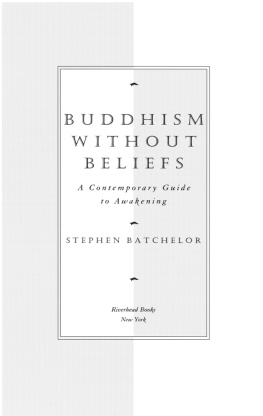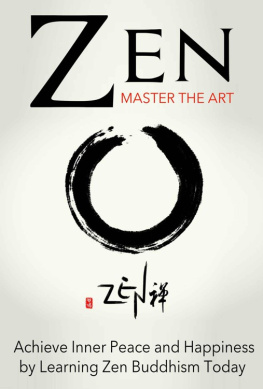Buddhism For Beginners
Seven Steps To Enlightenment For All Beginners
& Easy Steps To Achieve Them
Scott Green
TABLE OF CONTENTS
ABOUT US
The Blokehead is an extensive series of instructional/how to books which are intended to present quick and easy to use guides for readers new to the various topics covered.

The Series is divided into the following sub-series:
1. The Blokehead Success Series
2. The Blokehead Journals
3. The Blokehead Kids Series
We enjoy and welcome any feedback to make these series even more useful and entertaining for you.
PUBLISHERS NOTES
Disclaimer
This publication is intended to provide helpful and informative material. It is not intended to diagnose, treat, cure, or prevent any health problem or condition, nor is intended to replace the advice of a physician. No action should be taken solely on the contents of this book. Always consult your physician or qualified health-care professional on any matters regarding your health and before adopting any suggestions in this book or drawing inferences from it.
The author and publisher specifically disclaim all responsibility for any liability, loss or risk, personal or otherwise, which is incurred as a consequence, directly or indirectly, from the use or application of any contents of this book.
Any and all product names referenced within this book are the trademarks of their respective owners. None of these owners have sponsored, authorized, endorsed, or approved this book.
Always read all information provided by the manufacturers product labels before using their products. The author and publisher are not responsible for claims made by manufacturers.
Digital Edition 2015
Manufactured in the United States of America
ENLIGHTENMENT 101
Buddhism is all about spiritual development. Its not a religion that emphasizes worship of gods or goddesses to achieve salvation. Instead it encourages the practitioners to manifest the divinity within so that they can liberate themselves with their own hard work.
Buddhism focuses on the following things:
Being mindful of your own thoughts and activities (practicing meditation)
Living a proper life (upholding morality/kindness)
Developing wisdom
These things will help liberate the person from suffering. According to Buddhist belief, suffering is caused by desire and ignorance.
Desire
Desires cause suffering because of the following:
They create tension that motivates the person to fulfill the desires.
The benefits they give do not last forever.
Most desires do not completely satisfy a person.
Their rewards can dwindle and force one to seek a substitute.
They may cause addictions, which makes one dependent on them.
They distract the person from pursuing spiritual goals.
They can tie a person to material existence.
As you can see, desires may be good for keeping you preoccupied. But ultimately they do not satisfy you and they may even harm you.
Ignorance
According to Buddha, desires can lead to other unhelpful things such as hostility, greed, helplessness, and bad thoughts. Practically speaking, wanting something badly makes a person sacrifice things such as peace of mind, clarity of thought, concern for others, etc.
These desires, he said, are the result of ignorance. By having a better understanding of desires and reality in general, it will be easier to break free from suffering.
If you understand a thing, you will be better equipped to control it. Basically, the path to enlightenment involves increasing your understanding and strengthening your self-control so that you can escape suffering.
The end goal of Buddhism is to achieve enlightenment, which is also called nirvana. So what is nirvana, exactly? Although experiencing nirvana is beyond words, it has been described as the following:
Gaining true satisfaction
Attaining pure joy
Awakening to reality
Seeing reality for what it really is
Knowing your true self
Being part of a cosmic unity
Basking in the energy of the universe
Feeling unconditional love
Tapping into infinite wisdom
Attaining a profound peace
Reaching spiritual maturity
Becoming free of suffering and limitations
Getting a chance to escape the cycle of reincarnation
These benefits entice people to pursue enlightenment. Its rare to achieve a final enlightenment. Some gurus say that once you achieve this, you will gain miraculous powers and eventually shed your physical body. However, even a single experience of nirvana may be enough to sustain you through life. Your psychic abilities (siddhis) may get stronger as well.
The Buddha taught that all our unpleasant experiences result from an uncontrolled mind, and all our pleasant experiences are products of a properly controlled mind. He gave instructions for overcoming the destructive characteristics of our minds and for nurturing helpful mental states.
This book will teach you seven steps to achieve a state of enlightenment. You should realize that this is just a basic guideline so that you can get started. There are many, many ways to achieve enlightenment; this seven-step approach is just one of them.
Steps in Awakening:
1. Understand the four noble truths
2. Understand the noble path (plus other methods of enlightenment)
3. Practice acceptance
4. Control desires
5. Be aware and mindful
6. Question
7. Let go
Lets begin with the first step - understanding the four noble truths.
ENLIGHTENMENT STEP 1:
UNDERSTANDING THE
FOUR NOBLE TRUTHS
Understanding a situation is the first step toward doing something about it. To help with that, the Buddha gave four noble truths about suffering and how to overcome it.
First Noble Truth: Suffering
To live is to suffer to endure the hardships of life experiences (birth, illnesses, pains, challenges, death, etc.) and the burdens of psychological suffering (fear, anger, sadness, dissatisfaction, humiliation, rejection, and more).
In particular, these three marks of existence are present in all beings:
Impermanence
Suffering and dissatisfaction
Not-self
Impermanence
All existing things are constantly changing regardless of how much we want them to stay the same way. The Buddha taught that nirvana is the only eternal thing that a person can attain.
Suffering and Dissatisfaction
Since nothing can possibly last forever, every good thing we can ever experience in life will be gone eventually - our loved ones, our achievements, our pleasures. All will fade away sooner or later. We experience pain and dissatisfaction when the things that gave us happiness disappear.
Not-Self
Everything that is not the true self is impermanent and dissatisfying. The world we experience is not-self so we must not attach ourselves to it. Instead, we must free ourselves from our cravings and ignorance to discover what we truly are.
So, what are we, really? Youll read the answer later on.
Second Noble Truth: The Origin of Suffering
Suffering is a result of being attached to impermanent things. Wanting something or someone makes you become dependent on that object or person. Unfortunately, this will ultimately lead to pain.
By realizing the true nature of desires and the wisdom of being detached from them, you can take charge of your own contentment and joy. In fact, it is said that craving ties you to this world and causes you to become reincarnated over and over again. One explanation for this is that your energy becomes tied to the object of your interest; thus, you get stuck on earth and the reincarnation cycle brings you back to life.

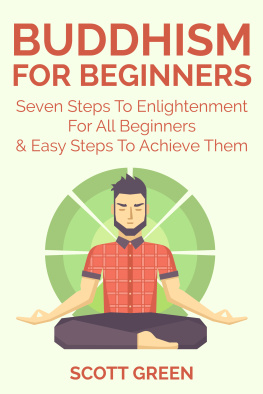




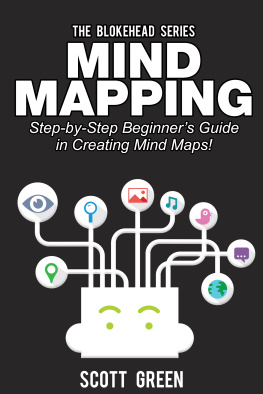

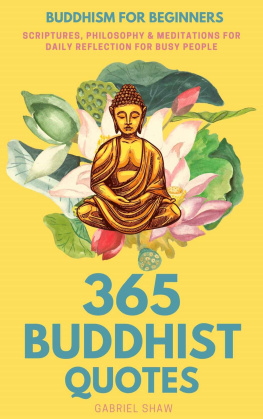


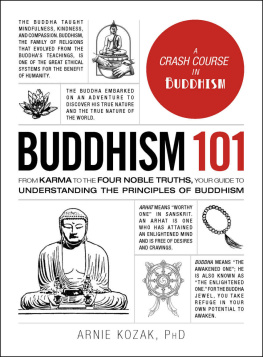
![Dalaï Lama XIV. - An introduction to Buddhism: [teachings on the Four noble truths, The eight verses on training the mind and the Lamp for the path to enlightenment]](/uploads/posts/book/207935/thumbs/dala-lama-xiv-an-introduction-to-buddhism.jpg)
